第10章 ON THE SAMBRE CANALISED(1)
TO QUARTES
ABOUT three in the afternoon the whole establishment of the GRANDCERF accompanied us to the water's edge. The man of the omnibus was there with haggard eyes. Poor cage-bird! Do I not remember the time when I myself haunted the station, to watch train after train carry its complement of freemen into the night, and read the names of distant places on the time-bills with indescribable longings?
We were not clear of the fortifications before the rain began. The wind was contrary, and blew in furious gusts; nor were the aspects of nature any more clement than the doings of the sky. For we passed through a stretch of blighted country, sparsely covered with brush, but handsomely enough diversified with factory chimneys. We landed in a soiled meadow among some pollards, and there smoked a pipe in a flaw of fair weather. But the wind blew so hard, we could get little else to smoke. There were no natural objects in the neighbourhood, but some sordid workshops. A group of children headed by a tall girl stood and watched us from a little distance all the time we stayed. I heartily wonder what they thought of us.
At Hautmont, the lock was almost impassable; the landing-place being steep and high, and the launch at a long distance. Near a dozen grimy workmen lent us a hand. They refused any reward; and, what is much better, refused it handsomely, without conveying any sense of insult. 'It is a way we have in our countryside,' said they. And a very becoming way it is. In Scotland, where also you will get services for nothing, the good people reject your money as if you had been trying to corrupt a voter. When people take the trouble to do dignified acts, it is worth while to take a little more, and allow the dignity to be common to all concerned. But in our brave Saxon countries, where we plod threescore years and ten in the mud, and the wind keeps singing in our ears from birth to burial, we do our good and bad with a high hand and almost offensively; and make even our alms a witness-bearing and an act of war against the wrong.
After Hautmont, the sun came forth again and the wind went down;and a little paddling took us beyond the ironworks and through a delectable land. The river wound among low hills, so that sometimes the sun was at our backs, and sometimes it stood right ahead, and the river before us was one sheet of intolerable glory.
On either hand, meadows and orchards bordered, with a margin of sedge and water flowers, upon the river. The hedges were of great height, woven about the trunks of hedgerow elms; and the fields, as they were often very small, looked like a series of bowers along the stream. There was never any prospect; sometimes a hill-top with its trees would look over the nearest hedgerow, just to make a middle distance for the sky; but that was all. The heaven was bare of clouds. The atmosphere, after the rain, was of enchanting purity. The river doubled among the hillocks, a shining strip of mirror glass; and the dip of the paddles set the flowers shaking along the brink.
In the meadows wandered black and white cattle fantastically marked. One beast, with a white head and the rest of the body glossy black, came to the edge to drink, and stood gravely twitching his ears at me as I went by, like some sort of preposterous clergyman in a play. A moment after I heard a loud plunge, and, turning my head, saw the clergyman struggling to shore. The bank had given way under his feet.
Besides the cattle, we saw no living things except a few birds and a great many fishermen. These sat along the edges of the meadows, sometimes with one rod, sometimes with as many as half a score.